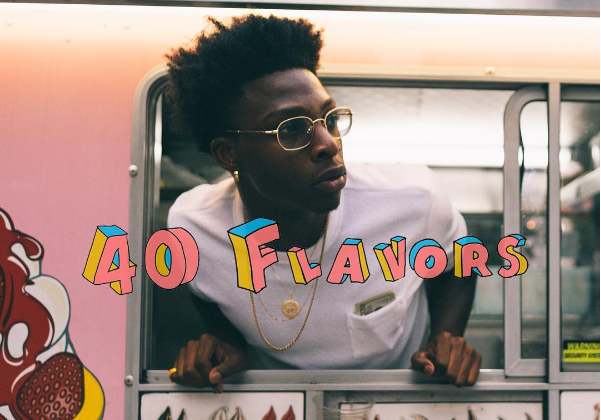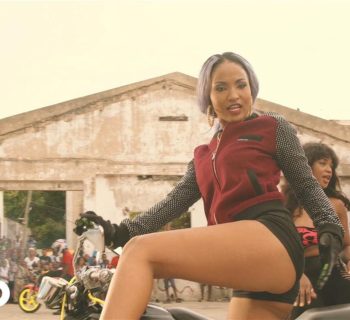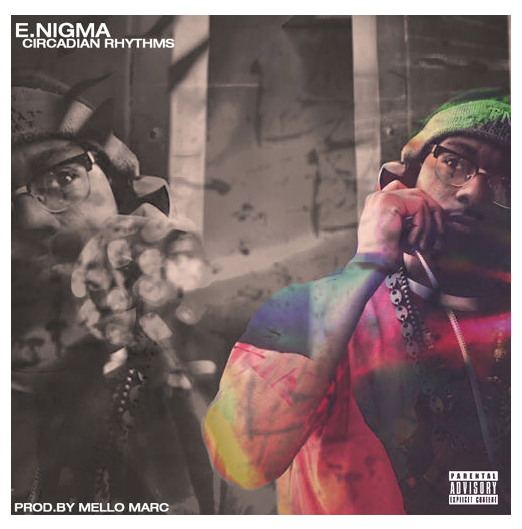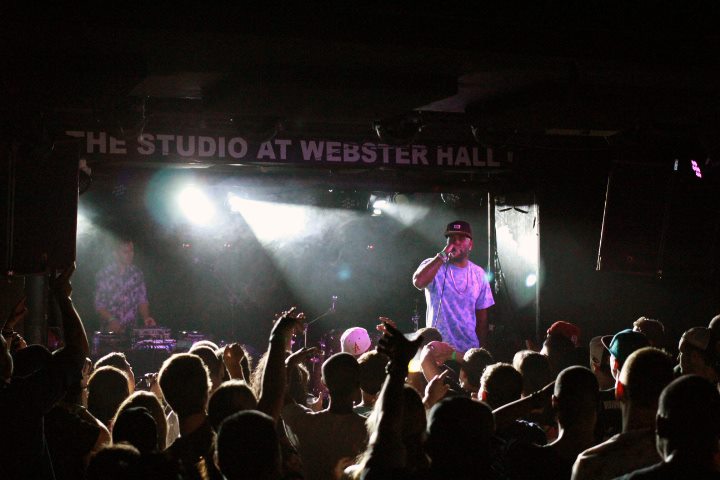How constant movement and culture shock gave Mari purpose.
One of the most powerful forces in the world is Black laughter. When smiles creep from underneath our hated tongues, traveling from deep within the hotbed of our bellies. The strength required to laugh, to hold on to the secret of self-worth the world says isn't deserved, un-quantifiable by human measure. I find myself often surrounded by Black bodies with enormous laughs. My friend Mari, who began his music career at Williams College (my alma mater as well), always reminded me of the power in Black joy. We shared a hallway and while my suitemates were getting their asses handed to them on Super Smash Bros in our common room (yes, by me, there was no contest), Mari spent his time creating beats, singing melodies that rang through his door, gracing us with joyful raps amidst the intense pressures of an elite institution. He was already in the process of establishing his own unique sound. He raps and giggles, generating an atmosphere for pleasure in the midst of heaviness.
Mari, growing more confident in his musical singularity began performing at the college. His energy breaking through the rented speakers, filling our classmates with glee, guiding them towards the heavens. I went to that first show; knew it was only a matter of time, if he kept at it, that he’d be lifting up even more people with his sound. Now, Mari is blowing up. Following his "Mari Mondays," weekly rap series garnering thousands of SoundCloud listens, Mari is ready to bring more glee to an austere world. To do this, he has to put his journey into perspective.
[soundcloud url="https://api.soundcloud.com/playlists/239118900" params="auto_play=false&hide_related=false&show_comments=true&show_user=true&show_reposts=false&visual=true" width="100%" height="450" iframe="true" /]
Following his graduation in 2014, Mari earned a job at a bank in Buffalo where, despite his paycheck, he ultimately felt stifled: "I was depressed. I was trying to figure out what my purpose was and why I was working at a bank. I wasn't intellectually stimulated; I worked in a cubicle every day and this was coming off the high of doing music at Williams". Big and vibrant personalities at small colleges earn the awe of their peers, but being Black at a PWI compounds the visibility. Performing at these institutions can easily inflate the ego; force you to negotiate culture shock, artistic expression, and selfhood. "When you graduate, you're still trying to find your identity. So you look back at college, look back at high school, and try to reconcile the two. So for me, it's like I might be educated but I'm still a nigga in America". Mari made a move to New York City in March of 2015, and with that shift, he realized that he began to trust himself more. "You do music at Williams and you start to wonder, wait am I a 'college rapper?' You have to adjust, and I had to speak to that in my music, I think once people recognized that this is MY thing, I started to trust myself more".
Imbibed authenticity is one of the main draws in Mari's music. On his angelic rap gospel, "Fill Us" Mari disparages the elitist idea of social mobility, deciding, instead to give love back to those who may not receive enough of it:
"They like who the fuck is that / Bitch I'm Mari, Edu / Tryna look me up, I see / I was born in the 90s / Family in the wild hundreds, went to school in the ivy's / To come back and spread this love nigga...You look like you're starving nigga, I'll make sure that you get fed".
Mari is lighthearted, his voice peaks on wax and listening to his music gives a sense that while he's rapping, he's grinning from ear to ear. Hailing from the Southside of Chicago, Mari is undoubtedly inspired by fellow artists; Chance the Rapper and NoName Gypsy -- who elicit that same elation staring in the face of perpetual death. When I ask him about the wide range of artists he channels on his records, he runs through a litany of Black paragons, young and old. "I'm pretty eclectic," he says, fingers rubbing through his curly fro, "especially when it comes to hip-hop. Outkast, Chance the Rapper, Yachty, Lil Uzi Vert...Even others like Stevie Wonder, Rick James, James Brown, I channel all of them when I do my music. But everything is still me." Mari finds power in aligning himself within a lineage of Black artistry. " I ask myself, how can I spit this verse like Jay-Z? How can I be melodic like Pharrell? how can I throw some singing like D'angelo or Badu in the mix? I ask myself how would this artist sound on this record and I just go in on it."
But Mari doesn't borrow other artist’s flow. His energy is all his own. "Whatever I'm making, it speaks to me first. I hear what the music is telling me." Sometimes the music isn't always ostensibly about happiness, like "Bliss" or "Up." He still has to be real. No one believes you if you're happy all the time. I ask him about the darkness in his song “All-Amerikkka,” one of many tracks that critique Western anti-Black racism. "I wrote that song the week of the Alton Sterling and Philando Castile murders." Those videos fucked me up, I admit. "I hate to see that shit," he agrees, "I hate them putting it out. It normalizes it. It almost desensitizes people. It's been going on for a while now, but it's just coming to light". He adjusts his wire-thin frames, rubs his head again and says, "Where I'm at now, I'm honestly confused. There are times I just say this country needs a full revamp. There're some ignorant ass people in this country and...I DON'T EVEN KNOW WHAT TO FUCKIN DO," he howls. As an artist, Mari spends a great deal of energy attempting to educate people about the realities of the streets while pushing for something better. But when faced with the constancy of Black pain, of Black suffering, he, like many of us, can't help but throw our hands up in the sky.
Hoping they don't shoot.
For a lot of Black Americans, the will to live has to be tethered to something other than what can be seen. The will to fight for rights not yet fulfilled comes from a repository of ancestral Black strength and conviction. For Mari, he hangs on to the promise that "God has something bigger for us." I start to get a peek into the philosophy that drives him to create, to perform and to live. "I've tried to repurpose what life means to me. Life is such a small part of the plan that God has for us. But at the same time we're being denied enjoyment of that life, which has me so confused. What did we do to deserve this?" he wonders aloud. Unlike traditional Christian conservatives--and even other Black artists who've grown up in gang-riddled areas--Mari never lets faith force him on the fence about social issues. "Like, black-on-black crime, we're not wholly responsible for that. We should be accountable to a certain degree but...a lot of that stems from white supremacy. Putting blacks in neighborhoods without resources, no jobs, no schools; marketing violence and money to them. You get such bad result."
Mari's music is sprinkled with these observations and contradictions--on loving and hating his own privileges, on finding genuine pleasure in this vaporous existence. Essentially, he's attempting to make music that will last beyond this impermanent life. The knowledge he's gained, he refuses to keep to himself; using his privilege to educate through music. It's difficult to get a sense of progress in times where a radically unjust world continues to stamp out radical love. But Mari is resolute in his smile; steadfast in his tenderness. With the music industry finally looking a bit more judiciously at positive rap in the wake of fear, Mari is confident that his break is on the horizon. "I just try to keep my faith strong. So now, it's whatever happens, happens. If there's gonna be a huge rebellion, I already know what side I'm ridin' with".
Connect with Mari
www.mari.world
Facebook.com/mariworld1
Twitter.com/mari_world_
Instagram.com/mari_world_
Youtube.com/channel/UCl5YeCMAZAJu8B90ndgSKFw


![[Video Premiere] Pat RZL - "Melanin"](https://upcominghiphop.net/wp-content/uploads/2016/10/Screen-Shot-2016-10-10-at-8.22.52-AM-130x130.png)
![[Audio] Kev - "Saturday"](https://upcominghiphop.net/wp-content/uploads/2016/10/Screen-Shot-2016-10-12-at-7.46.07-AM-130x130.png)
![TruthCity - "The Family" Video [Dir. FX] (Prod. Yung Lan)](https://upcominghiphop.net/wp-content/uploads/2017/02/TruthCity-TheFamily-350x320.jpg)



![[Audio] "We Don't Care" - Kwoat](https://upcominghiphop.net/wp-content/uploads/2015/08/Screen-Shot-2015-08-17-at-6.13.56-PM.png)


damn, what a strong story. he’s got promise!